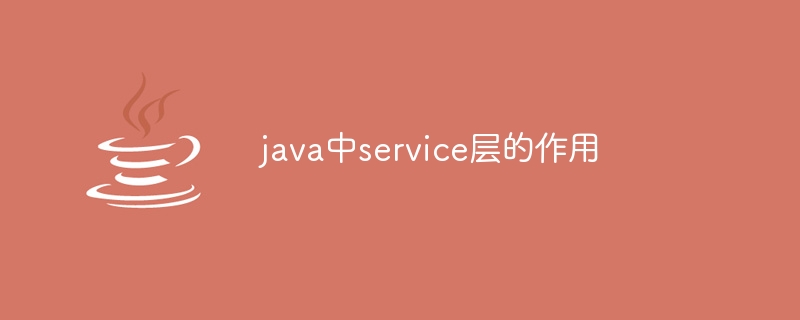Home >Java >javaTutorial >The role of the service layer in java
The role of the service layer in java
- 下次还敢Original
- 2024-05-07 03:18:141230browse
The Service layer is between the Controller and DAO layers in the Java architecture. Its main responsibilities include: processing complex business logic. Perform data processing, including transformation, validation, ensuring consistency and transactionality. Responsible for communicating with other services. Reduce coupling. Improve testability.

The role of the Service layer in Java
The Service layer is between the Controller layer and the DAO layer in the Java architecture The core components of Get data from the database
Validate user inputExecute business rules
Update database
- By separating the business logic from the Controller layer, The Service layer can improve code reusability, maintainability, and testability.
- Data processing
- The Service layer can also perform the following important data-related tasks:
Convert data format
Verify the integrity and validity of dataEnsure data consistency and transactionality
- Communication with other services
- Service Layers can be used to communicate with other services, such as remote services or third-party APIs. This enables the Service layer to extend the functionality of the application without introducing new Controllers or DAOs.
- Reduce coupling
The Service layer improves the overall architecture of the application by minimizing its coupling with the data layer and presentation layer. This makes the application easier to maintain and extend.
Improve testability
Since the Service layer is responsible for business logic, it is easy to unit test. This helps ensure the robustness and reliability of your application.
The above is the detailed content of The role of the service layer in java. For more information, please follow other related articles on the PHP Chinese website!

